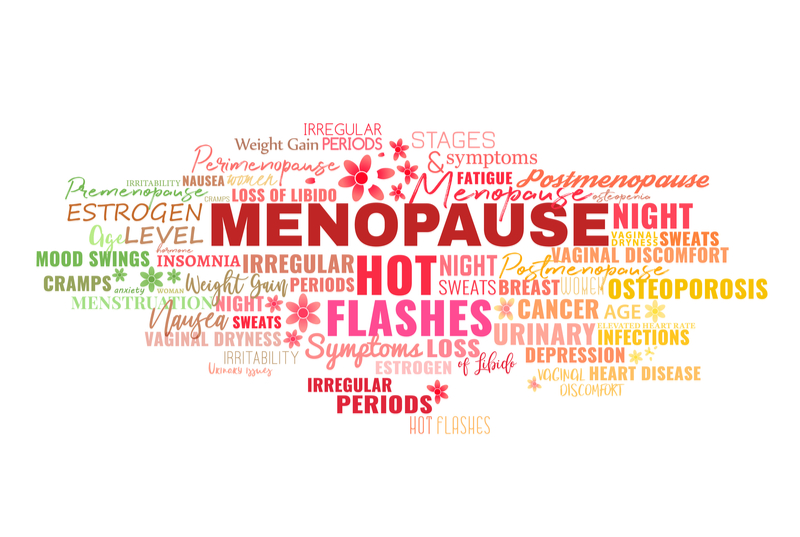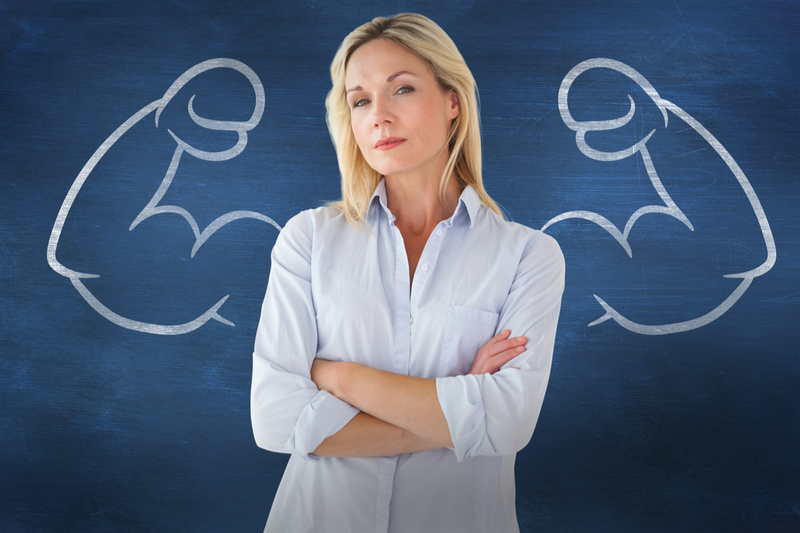Let’s talk about endometriosis. You probably already have some experience with it. That’s probably what brought to this article. However, we will talk a little bit about it and how it affects your whole body. As much as many would like to believe, endometriosis affects a lot more than just your uterus. It can affect your entire stomach, including your intestines, stomach, and bowels. It can cause serious pain that cannot be relieved by simple medications. Endometriosis can affect the way you feel about yourself. It could be the reason for your depression as well. Your doctor may recommend a hysterectomy, pain management, or even birth control to control the symptoms. Controlling the symptoms seems to be the most you can hope for. What about Menopause? Will menopause mean the end of your endo pain? Let’s find out.

What’s the Deal with Endo?
Endometriosis is where the uterine cells grow outside of the uterus. They can grow on your ovaries, fallopian tubes, intestines, or even in your bowels. These misplaced cells still work as they should, which means you have cramps and irregular bleeding. If that wasn’t bad enough, these cells aren’t in sync with your cycle which completely throws it off. That is one reason why your doctor will recommend hormones as a way to control symptoms.
You may be offered a hysterectomy as an option of dealing with the pain. That may not be what you want. It may even throw your body into early menopause. So, the question becomes: Is there ever an end to endo pain? Is menopause the cure for endometriosis?
Endo causes pain, scarring, and even the pooling of blood in your abdomen. It is no fun to deal with. It can completely change your life and the way that you deal with the things in your life. There has to be an answer, doesn’t there?

Why Menopause can be Relief
There is no guarantee that you will find a total cure from endo pain when you hit menopause. However, menopause causes a shift in hormones. Sometimes the pain of endo is caused by or related to hormonal imbalances. Hormones are thought to be the cause of the way cells develop, even though we don’t know the exact science behind why endo acts the way that it does. This may mean that when you begin going through menopause that shifts in hormones may help to relieve the symptoms. It may mean less abnormal cell growth. That abnormal cell growth is what is responsible for the pain and bleeding associated with endo. Yet, there is no guarantee that menopause will mean that your pain is going to lessen or that cells will stop developing.
Why Menopause Might ake Endometriosis Worse
Menopause comes with its very own symptoms and problems. Some of these are not related to endometriosis at all but can make endo a little harder to deal with. For instance, you may find that menopause makes you feel less girly. You may feel very unsexual or even be repulsed by sex. You may not have as much pain until you have sex. Pain when you are aroused, during sex, or after sex is a very real problem. It can be very frustrating. What is worse is that it can really hurt your marriage or relationship. You feel isolated in your own body.
When Menopause is Forced
Symptomatic menopause is when you are forced into menopause by a hysterectomy. Many doctors will recommend a hysterectomy as a treatment option for endometriosis. While the idea behind it is sound, not all doctors will tell you how your body will react. They can tell you how it might react. They can tell you how they are hoping that it will react. The truth is that your body is different than anyone else’s body. You may have a great reaction and feel better than you felt in years. You may also find that it had no effect on your endometriosis at all. It could even lead to even worse pain. You may have symptoms that you never thought you would have to deal with.
When you have to get your ovaries removed, you will often go through hormone therapy. This is almost always needed. This hormone therapy can cause your hormones to really go crazy. The imbalances that it causes can make you feel like it has set your endometriosis on fire. You may see an increase in symptoms, including pain. You may not be able to stop this therapy and may need to treat the symptoms with more medications. It may feel like that hysterectomy was the beginning of the end. This is one time where menopause can almost certainly make your endometriosis worse and your flare-ups to become more frequent.
At this point, you are probably trying to figure out how to decide if your menopause will make your symptoms better or worse. There is no clear answer. Your best choice is to study your options. Weigh out your pros and cons. Talk to your doctor. Then decide if you are ready to face menopause by getting a hysterectomy. For some women, it is simply the only option that they have.

Taking your Symptoms into Consideration
Research has shown that the severity of your symptoms is the determining factor as to whether or not menopause will help your symptoms. If you are dealing with severe symptoms that control your life and make your schedule your day around it, there may not be much relief in menopause. You may need surgery regularly to control the growth. Pain management may seem like the only option that there is for you. Menopause may help with the bleeding. It may help slow down the growth.
If your endometriosis has been controlled by hormone therapy, like birth control, or if you haven’t had symptoms that are beyond what you can endure, you are more likely to see menopause has a positive effect on your body. You may even see that your endo symptoms have almost completely diminished. Menopause could be a welcome relief for you.
It is NOT All in Your Mind
Endo pain is real. Others may not be able to see the physical toll that it takes on your body or mind, but that does not mean that you aren’t dealing with it. Having a doctor listen to you and take you seriously may finally validate your feelings and help you to start healing.

Your doctor may suggest that you start seeing a therapist. You may argue that it isn’t a mental condition. However, your body and mind are connected. Being in constant pain may exhaust you mentally. You may feel so overwhelmed dealing with all the things that endo puts on your plate that you lose focus and get depressed. That is acceptable. Don’t let anyone tell you otherwise.
A therapist will help you to work through mental exhaustion of dealing with a chronic condition. They can help you to determine what you can do to help yourself feel like you again. You may be able to find that talking to someone helps you to clear your mind and refocus. You may feel more prepared and more confident than if you are just trying to make it through. We all second guess ourselves. We all wonder if we are doing all we can to ease the pain. Talking to someone validates our feelings and helps us to organize our thoughts. It’s not that talking to someone gives us strength but rather talking to someone allows us to see our strengths. We have the choice to accept who we are and decide that we are more than what we are given. All it takes is unlocking that side of us. You are stronger than you think.

Endometriosis and menopause may affect each other in ways that no one could truly prepare us for. It is up to us to work through our emotions and strengthen our minds so that we can deal with whatever is on our plate. You are not alone in this fight. Do not be afraid to ask questions until you understand. You are incredible. You are strong. You are an endo warrior.











